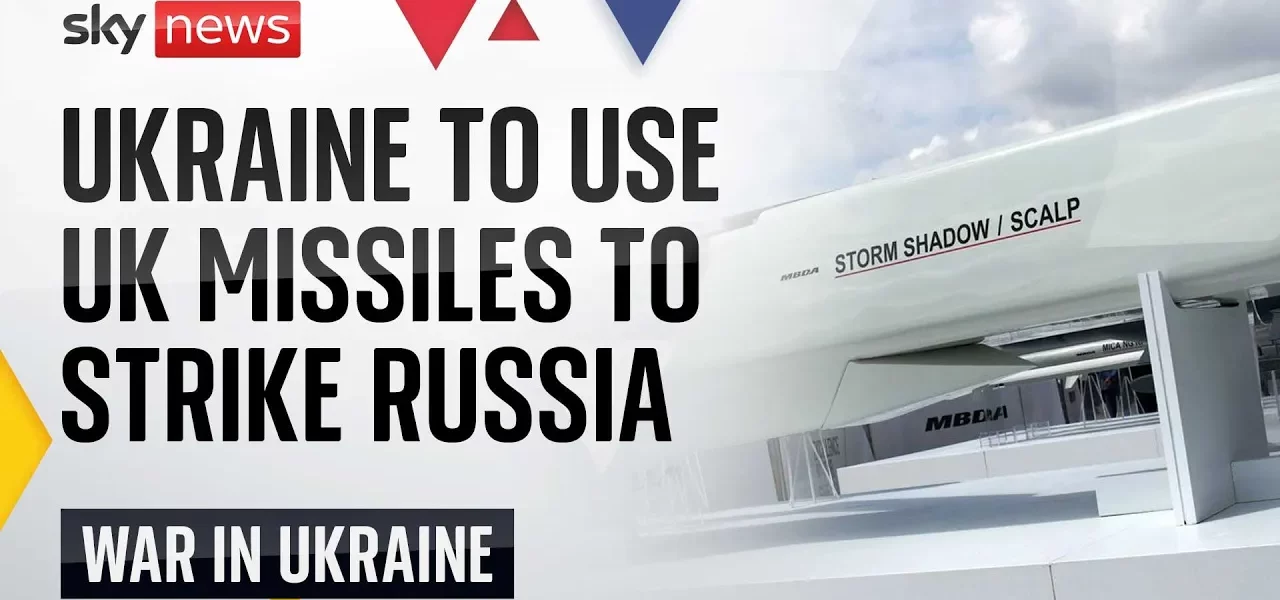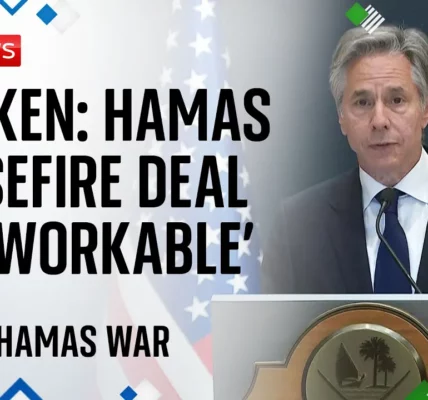UK’s Decision to Allow Ukraine to Use British Missiles for Defensive Strikes

This article delves into the recent announcement by the UK Prime Minister regarding the use of British missiles by Ukraine, examining the implications of this decision on international relations, particularly with Russia, and the responses from various stakeholders.
Introduction
The recent announcement from the UK Prime Minister permitting Ukraine to use British missiles for defensive strikes against targets inside Russia marks a significant shift in diplomatic relations and military strategy. This decision, which follows a meeting between UK Labour leader Kier Starmer and Ukrainian President Volodymyr Zelensky at the NATO Summit in Washington, indicates a robust commitment from the UK to support Ukraine amidst ongoing tensions with Russia. This article will explore the implications of this policy change, the reactions from Russia, and the broader geopolitical context surrounding these developments.
Context of the Decision
The UK’s policy allowing Ukraine to utilize British missiles against Russian targets is not entirely new. It is a continuation of a strategy initiated earlier in May by former Foreign Secretary David Cameron, who first authorized such measures. This section will further outline the context surrounding this decision.
The Role of NATO
The NATO Summit in Washington has played a pivotal role in shaping the current military landscape. The collaboration among NATO allies strengthens the collective defense posture against perceived threats from Russia. The UK’s commitment to support Ukraine is seen as an essential aspect of this alliance.
Strategic Military Support
Military support for Ukraine is crucial given the ongoing conflict. The UK’s provision of missiles enables Ukraine to bolster its defensive capabilities. Key points regarding this support include:
- Enhanced defensive posture against Russian aggression.
- Strengthened alliances with NATO partners.
- Potential deterrent effect on further Russian incursions.
Reactions from Russia
The Kremlin’s response to the UK’s announcement has been one of anger and warning. Russian officials have expressed their discontent with the decision, framing it as an irresponsible escalation of tensions. This section analyzes the Russian government’s perspective and its potential implications.
Official Statements from the Kremlin
Following the announcement, Dmitry Peskov, the chief spokesperson for President Vladimir Putin, characterized the UK’s decision as an irresponsible step towards further escalation. The Kremlin’s reaction can be summarized as follows:
- Increased military readiness in response to perceived threats.
- Warnings that UK military facilities could become targets for retaliation.
- Calls for careful monitoring of NATO’s military actions in Europe.
Historical Context of Russian Warnings
This is not the first time Russia has issued warnings regarding military actions taken by NATO members. Historical context shows a pattern of aggressive rhetoric from the Kremlin whenever NATO expands its military presence or support in Eastern Europe.
The Global Implications of the Decision
The decision to allow Ukraine to use British missiles is not only a matter of regional tension but also has global ramifications. This section explores the broader implications of this military support.
Impact on U.S.-Russia Relations
The U.S. has also made significant military commitments, including plans to deploy long-range missiles in Germany by 2026. These actions are perceived by Moscow as provocations, further straining U.S.-Russia relations.
Reactions from Other Global Powers
China has also reacted negatively to the NATO Summit’s discussions, particularly regarding statements that label China as a supporter of Russia’s military efforts. This has increased tensions not only between Russia and the West but also between China and NATO.
- China condemns NATO’s statements as biased and belligerent.
- Calls for de-escalation rather than blame-shifting.
Conclusion
The UK’s decision to allow Ukraine to utilize British missiles against Russian targets signifies a critical juncture in the ongoing conflict and highlights the complexities of international relations in the current geopolitical climate. As tensions rise, it is imperative for all parties involved to consider the potential for escalation and the global consequences of their actions. The situation remains fluid, and continued monitoring of developments is essential. For further insights into international relations and military strategies, explore our related articles on NATO’s role in global conflicts and the impact of military aid on international stability.
“`




